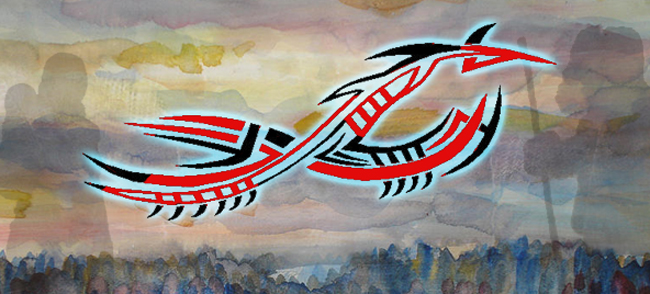
The history of Indigenous peoples in North America has been marked by enduring challenges, including genocide, land loss, and cultural upheaval since the arrival of European settlers. These experiences have left lasting effects on individuals and their cultures, influencing their social, psychological, and physical well-being.
There’s a growing interest in understanding how historical traumas like these may be associated with genetic changes, particularly epigenetic changes like DNA methylation. In addition, researchers are exploring how the promotion of cultural preservation within Indigenous communities can foster healing and resilience in the face of such traumas.
In a new study, researchers explored the relationship between historical traumas in Alaska Native communities and epigenetic markers on genes linked to trauma. They discovered a similar pattern among Alaska Native participants, with specific epigenetic differences in those who reported intense distress when reflecting on historic losses. Their findings were published in the International Journal of Health Equity.
DNA methylation is an epigenetic modification that involves the addition of a methyl group to the DNA molecule. When methyl groups are added to certain regions of a gene, it can lead to gene silencing or reduced gene activity, effectively turning off that gene.
“These epigenetic modifications are often studied in response to severe changes in lived environments,” said study lead author Mary LaVanne, University of Illinois at Urbana-Champaign (UIUC). “Epigenetic alterations can persist throughout the lifespan and are sometimes maintained over multiple generations.”
In previous articles, we’ve discussed how alterations in DNA methylation patterns can persist across generations. We’ve also explored how epigenetic changes influenced by the environment can be connected to enduring health disparities in specific minority groups.
Epigenetic research on trauma is in its early stages, but studies in various populations have shown trauma-induced gene modifications related to functions like homeostasis, immune response, and stress response, notes Ripan Malhi, author and UIUC anthropology professor.
Alaska’s Native communities have endured centuries of upheaval, including violence, diseases, and forced relocation. Much of this turmoil stems from colonial expansion into the Americas and continued mistreatment long after the colonial era.
The study mentioned infamous instances of historical trauma among Native American and Alaska Native communities, which encompass acts of genocide, cultural genocide, forced relocations, and the era of boarding schools.
Experiences like these often result in enduring psychological scars. For instance, one of the study’s co-authors, Rosita Worl, who serves as the president of Sealaska Heritage Institute, a nonprofit organization dedicated to preserving Alaska Native cultural traditions, personally endured the trauma of being separated from her family during her childhood.
“At six years old, I was taken from my grandparents to a Presbyterian boarding school,” said Worl. The school used collective punishment, requiring students to beat misbehaving children with wooden paddles. She remembers lying in bed, wondering why she was there.
“It left scars, and I suffered from trauma,” she said. These experiences disrupt a child’s development, leaving them with a limited understanding of family life and parenting, ultimately affecting generations of Native people.
The research team focused on DNA methylation to better understand how such experiences might affect gene expression. They sought to determine if the people’s feelings of sadness, anger, or anxiety when reflecting on traumatic events coincided with specific changes in DNA methylation. The second part of the study explored the correlation between Alaska Native cultural identification and well-being.
Participants completed surveys covering cultural identification, historical traumas, and overall well-being. These surveys inquired about how often they thought about historical traumas and losses, as well as the symptoms they felt when recalling those events.
“Some of the symptoms that people reported included increasing sadness, depression, anger or anxiety when thinking about different types of historical traumas,” said LaVanne. They also mentioned disturbed sleep, feelings of detachment from others, and a fear that the traumas might recur.
These surveys were conducted in community clinics and centers, including Alaska Native cultural centers, with community counselors available to assist participants, Malhi added.
Additionally, the team collected blood samples from 117 Alaska Native participants to investigate methylation at more than 850,000 sites across the genome. The study revealed associations between the symptoms that arose when participants reflected on traumatic events in their community’s history and DNA methylation of specific genes. Some of these methylated genes had been previously implicated in similar studies of traumatized groups, such as children in a Russian orphanage and individuals with major depression or PTSD after distressing events.
“For example, we found methylation at one of the genes identified in a similar study of early childhood deprivation,” LaVanne said. “Another methylated gene in our study had differential expression in individuals with PTSD in a separate study.
They also found a positive relationship between cultural identification and the well-being of Alaskan Native people. This supports what participants shared in their oral narratives about cultural identity and well-being.
LaVanne emphasized that the findings do not prove that historical traumas directly cause the differences observed in DNA methylation. However, they contribute to the growing body of evidence suggesting that traumatic events leave both physical and psychological imprints on those affected and their descendants. The study also sheds light on the factors that enable people to remain resilient and thrive.
Worl encapsulated this spirit, saying, “I always tell our kids, we come from strong people. We’ve survived rises of the sea, lowering of the seas, advances of the glaciers, retreats of the glaciers, suppression of our culture — we’ve survived it. But, we have, you know, those who are still wounded.”
Source: Mary P. Rogers-LaVanne, et al. Association between gene methylation and experiences of historical trauma in Alaska Native peoples. International Journal for Equity in Health, September 8, 2023.
Reference: Diana Yates. Study links epigenetic changes to historic trauma in Alaska Native communities. University of Illinois at Urbana-Champaign, News Bureau. September 7, 2023.

